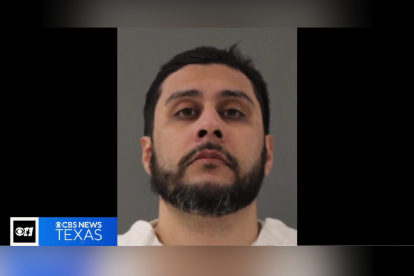A Hispanic man received a lethal injection in Texas for the 2004 murder of a young mother
Moises Sandoval was convicted twenty years ago for the murder of Rachelle O'Neil Tolleson, whose body was found burned in a field.

In the image, Moisés Sandoval Mendoza, executed April 23, 2025
Moisés Sandoval Mendoza, convicted of strangling and stabbing to death a young mother more than 20 years ago, was executed Wednesday night in Texas via lethal injection despite multiple attempts by his lawyers to prevent the death penalty.
Sandoval received a lethal injection at the state penitentiary in Huntsville and was pronounced dead at 6:40 p.m., according to authorities. The man, of Hispanic origin, was convicted of the March 2004 murder of 20-year-old Rachelle O'Neil Tolleson.
"I am sorry for having robbed you of Rachelle's life (...) To Avery ... I robbed you of a mother. I'm sorry for that. I know nothing that I could ever say or do would ever make up for that. I want you to know I am sincere. I apologize," Sandoval said before receiving the lethal injection in the prison's execution chamber.
According to the jury, prosecutors succeeded in proving beyond a reasonable doubt that Sandoval, 41, kidnapped Tolleson from her North Texas home, leaving her six-month-old daughter alone.
Evidence shown by the prosecution showed that Sandoval burned Tolleson's body to hide her fingerprints. Prosecutors claimed the young mother was identified through dental records.
Tolleson's baby was fortunately found safe by her grandmother a day later, despite being wet and with a cold body temperature.
This Wednesday, ahead of the execution, the U.S. Supreme Court rejected legal attempts by Sandoval's lawyers to halt his execution. Earlier, lower courts and the Texas Board of Pardons and Paroles had denied his requests for a stay or commutation of the death penalty.
Sandoval's defense argued that, during the appeals process, the defendant was not allowed to argue that he had had deficient legal representation.
In their motion, Sandoval's representatives asserted that both his original and appellate counsel failed to challenge key testimony from a detention officer, who testified that Mendoza had provoked a jail fight to justify that he posed a future danger to society, a necessary requirement for capital punishment in Texas.
Lawyers argued that this testimony was false, and that the other inmate involved claimed in an affidavit that the same officers encouraged him to start the fight in exchange for incentives. According to the defense, this may have influenced the verdict, as the jury asked specific questions about those incidents during deliberations.
However, the Texas prosecution defended that federal courts had already dismissed those arguments and that, even without the officer's testimony, the jury heard abundant evidence about the danger Sandoval posed to society, highlighting his extensive history of violence, including assaults on his mother and sister, and the rape of a minor.
In addition, prosecutors remarked that, after two decades of prosecution, the State and the victims had a legitimate interest in seeing the sentence carried out.
RECOMMENDATION






















